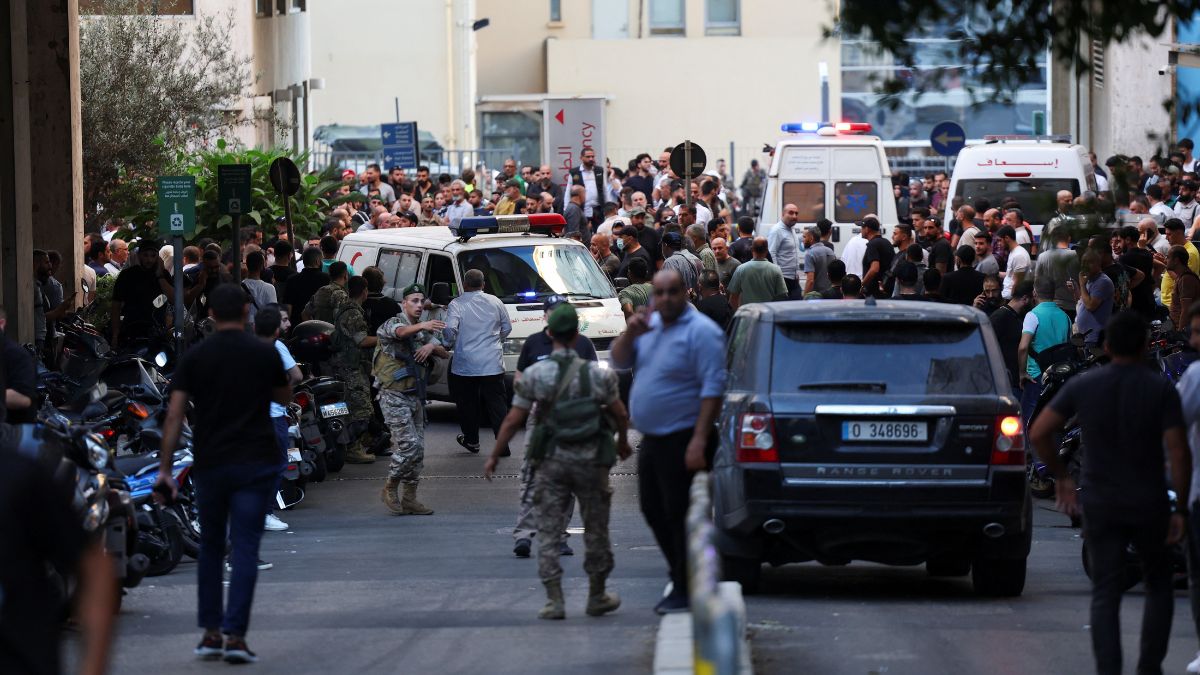A series of explosions rocked Lebanon on Tuesday (September 17, 2024) when thousands of pagers — used predominantly by Hezbollah members — exploded simultaneously in various regions.
The blasts, allegedly a joint operation orchestrated by Israel’s intelligence agency Mossad and its military, reportedly took the lives of at least 16 people and left more than 2,750 injured, including 170 in critical condition.
The Lebanese Health Minister, Firass Abiad, confirmed that these figures could rise as more victims are identified. Among the dead were Hezbollah members and civilians, including children.
Who were the victims?
The exact number of victims has still not been confirmed and an established death toll is yet to be announced. As blasts were reported both in Lebanon and Syria, numerous reports have differing numbers.
It appears that eight of the casualties were members of Hezbollah. The group initially announced that two members were killed in the pager bombings, but later announced six others who were killed on the same day. Although they did not confirm how the latter died.
Seven people were killed in Syria, according to Iran’s Islamic Revolutionary Guard Corps-affiliated Saberin News.
One of the most high-profile victims of the blasts was Iran’s Ambassador to Lebanon, Mojtaba Amani, who sustained a superficial injury. Iranian media confirmed that Amani was under medical observation, and Iran’s Foreign Minister, Abbas Araqchi, condemned the attack as an act of “Israeli terrorism.” Two of Amani’s embassy employees were also wounded in the attack.
Among the deaths was that of 10-year-old Fatima Jaafar Abdullah, who was killed when her father’s pager exploded at their home in the Bekaa Valley. “A 10-year-old girl was martyred in the Bekaa Valley after her father’s pager exploded while he was next to her,” her relatives told AFP.
Another victim, the son of Hezbollah MP Ali Ammar, was also killed by an exploding pager.
The explosions overwhelmed hospitals in Beirut and southern Lebanon. Approximately 150 hospitals across the country received victims, and the Lebanese government issued a plea for blood donations.
The Lebanese Ministry of Health also advised citizens to dispose of their pagers and warned hospitals to remain on high alert due to the sheer number of injured arriving for treatment.
What happened on Tuesday?
The unprecedented attack, which Hezbollah described as the “biggest security breach” in its history, occurred when communication pagers, believed to have been compromised by Israeli intelligence, exploded across multiple locations, including Beirut, southern Lebanon, and the Beqaa Valley.
The New York Times reported that the devices, manufactured by Taiwanese firm Gold Apollo, were rigged with explosives. Israel reportedly planted explosive material next to the batteries of the pagers, allowing them to be detonated remotely when the devices received a signal.
Videos circulating on social media captured the chaotic aftermath, showing people with severe injuries, some with blood streaming from their hands and faces. In one clip, a man shopping in a supermarket drops to the floor, clutching his abdomen after an explosion tears through his bag.
Eyewitness accounts painted a grim picture: “There was blood on the roads, and people were being transported in ambulances to the hospital, but we didn’t know what was happening,” one witness told CNN.
How did Hezbollah respond?
Hezbollah issued a statement condemning the attack, vowing retribution against Israel. “This criminal and treacherous enemy will definitely receive a fair punishment for this sinful assault, both in ways that are expected and unexpected,” Hezbollah said.
The militant group, which is backed by Iran, also promised “hard atonement” for what it termed the “massacre.” Despite Hezbollah’s accusations, the Israeli military has remained silent, offering no comment on the operation.
Lebanese Prime Minister Najib Mikati condemned the attack as “a serious violation of Lebanese sovereignty and a crime by all standards,” stating the need for the international community to hold Israel accountable for the loss of life.
The attack has not only exposed a significant vulnerability in Hezbollah’s communication network but has also heightened tensions in the already volatile West Asia. Israel and Hezbollah have engaged in sporadic cross-border strikes since the war in Gaza began in 2023, and this incident marks a dangerous escalation.
Aren’t pagers low-tech?
In response to persistent Israeli surveillance, Hezbollah had shifted its communication systems to low-tech alternatives. Earlier in 2024, Hassan Nasrallah, the leader of Hezbollah, urged his operatives to stop using mobile phones, advising them to instead rely on pagers, which were thought to be safer from Israeli and US intelligence.
The pagers, which Hezbollah had recently purchased, were reportedly imported from Taiwan through a European distributor and labelled under the Gold Apollo brand.
However Gold Apollo has said that the pagers, which had the company’s bearings, were made by a distributor in Europe. Taiwan has no record of Gold Apollo pagers being shipped to Lebanon or the Middle East, a senior Taiwanese security official told CNN.
According to a Lebanese security source, the devices detonated simultaneously on Tuesday afternoon, triggered by a message sent to the pagers. David Kennedy, a former NSA intelligence analyst, speculated that the size and timing of the explosions suggested they were premeditated. “It’s more likely that Israel had human operatives inside Hezbollah… The complexity needed to pull this off is incredible,” Kennedy told CNN.
With inputs from agencies
)